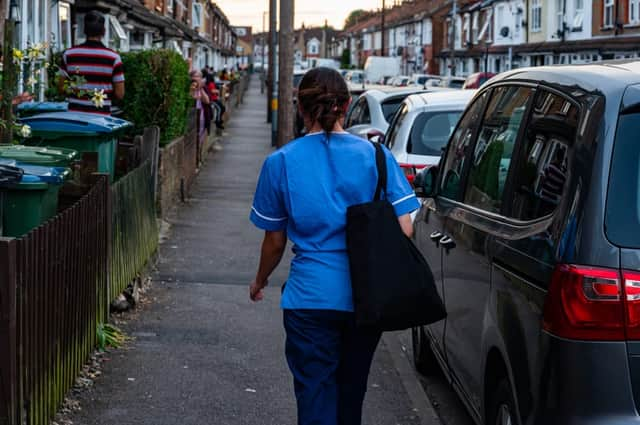Court rules that carers who sleep over will only be paid while awake


Judges have ruled that carers sleeping at their workplace overnight in the UK are not entitled to minimum wage while asleep.
On Friday 19 March, the Supreme Court dismissed appeals against previous rulings from two care workers.
Advertisement
Hide AdAdvertisement
Hide AdClaire Tomlinson-Blake and John Shannon were fighting against a Court of Appeal ruling which said that minimum wage should only be awarded when care professionals are required to be awake for work.
The Supreme Court upheld the Court of Appeal ruling, saying the Court of Appeal and previous employment tribunals were "correct" to dismiss the workers' appeals.
Pay for time spent sleeping could add up to £400m
In the 32 page long written ruling, Lady Arden of the Supreme Court wrote that "sleep-in workers... are not doing time work for the purposes of the national minimum wage if they are not awake".
Lady Arden also added: "The sleep-in worker who is merely present is treated as not working for the purpose of calculating the hours which are to be taken into account for national minimum wage purposes and the fact that he was required to be present during specified hours was insufficient to lead to the conclusion that he was working."
Advertisement
Hide AdAdvertisement
Hide AdCare organisations across the country have welcomed the decision, saying the sector had avoided a "potentially catastrophic" situation in which back pay for time spent sleeping could have totalled £400 million.
Mrs Tomlinson-Blake, a care worker in East Yorkshire who provided 24 hour home care to two vulnerable adults, spoke of her disappointment following the ruling.
"This case was never about the money. It was about the principle of treating staff fairly," she said.
"Sleep-in shifts aren't about just being on call - it's work. Staff are constantly on guard to protect the most vulnerable in society.
Advertisement
Hide AdAdvertisement
Hide Ad"The care workforce should be valued permanently. Respect for staff shows that the people we care for matter too."
Calls for government reform
Edel Harris, chief executive of learning disability charity Royal Mencap Society, said he understands care workers will be "disappointed" by the ruling.
Mencap contested the case, however, because of the "devastating" back pay liabilities it could have caused for the social care sector.
"Sleep-ins are a statutory care service which should be funded by local authorities, and ultimately government," he said.
Mr Harris has called on the government to reform "sleep-in" payments in social care.